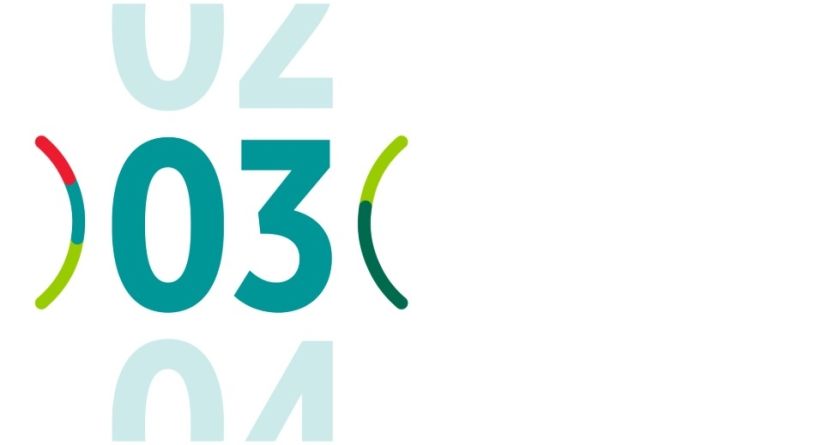
Eurozone hit by an immediate, lasting and doubly asymmetric competitive shock
The Russia-Ukraine conflict and the resulting disorderly energy crisis has triggered an immediate, but lasting, structural competitiveness shock in the Eurozone. This shock is asymmetrical in two different ways. Logically, it is impacting Europe more than other advanced economies, but it is affecting European countries differently too. One impact of this shock is expected to be higher prices for energy imports in 2022 than 2021, some of which has already materialised.
In line with the assumption of a drawn-out conflict, the assessment of this shock also includes limited Russian gas supply (stabilising at levels seen in July) and gas prices that will exceed EUR200/MWh for a significant period. The cost of this shock in terms of GDP could reach an estimated 6ppt in 2022 and an additional 3ppt in 2023. The impact on the Eurozone economy is already apparent and reflected in the successive downgrades to our scenario since March. Our Eurozone GDP forecast for end-2023 is 3.2ppt lower than before the invasion of Ukraine.
An unprecedented turn
The Eurozone economy has taken a turn. H1 growth was solid on the back of (1) the post-omicron rebound and high levels of consumer spending on services; (2) purchasing power bolstered by robust wage growth; and (3) government measures to mitigate the impact of rising prices. The growth carry-over for 2022 was 3.2%, which warranted the increase in our 2022 growth forecast from 2.5% to 3.2%.
However, over the summer, the threat of limited Russian gas supply materialised, prices soared, and energy inflation increasingly spread to other components of the price index. As a result of this unfortunate sequence of events, central banks are becoming increasingly concerned, not just about current inflation, but also the risks that price and wage setting mechanisms will shift and that inflation expectations will soar out of control. Their aggressive action on rates, combined with higher inflation, will bring the post-Covid expansion phase to a premature end.
The main concern has shifted away from household purchasing power to the risks to profitability and operational challenges for business, which are having to contend with more limited energy supply, rising costs and less accommodative financial conditions. As such, we are revising our 2023 growth scenario down from 1.1% to 0.4%.
Red October
The Eurozone is weakening sharply, which is reflected in September’s latest surveys, particularly in the manufacturing sector where the branches that consume the most energy are already seeing declines in their business.
Although growth remains underpinned by the services and tourism sectors in Q322, Q4 is expected to see a sharp drop in GDP, one that is likely to continue into Q123. With two quarters of moderate recession at the turn of the year, our forecast may seem like a relatively soft landing for the Eurozone economy. However, we should not forget that YoY GDP growth is expected to drop from 5.4% in early 2022 to 0.1% in mid-2023.
We have relegated a hard landing to our adverse scenario. The Eurozone economy may still receive a boost from robust job creation, solid growth in wages and healthy balance sheets at private companies. Labour shortages in certain sectors and the use of the short-time work scheme at businesses hardest hit by rising costs and rationing will curb the rise in the unemployment rate.
In our central scenario, efforts to diversify gas supply and the voluntary reduction of consumption should help to avoid stricter rationing. This reduction will take place via market forces, either through auctions involving the companies consuming the largest amount of gas (as detailed in certain countries’ emergency plans) or through ‘voluntary’ stoppages of businesses that are not profitable enough due to rising costs.
A recession scenario is certainly forming, but it remains very moderate and no wishful thinking is needed for now. Although businesses are having to contend with serious pressure on margins combined with weakening domestic and foreign demand, lower usage of available supply would help ease the bottlenecks in value chains. In the short term, uncertainly over supply tends to drag down demand. The recession could end up being a reliable source of declining inflation. The effect of rising gas prices on inflation could go both ways. Inflation is spreading more persistently throughout the value chains and impacting the prices of other goods and services, but it is also curbing demand, which will ultimately cool rising prices. Our scenario is pricing in this second impact outweighing the first and causing inflation to fall in 2023 (to 6.7% from 8.3% in 2022), despite higher average prices next year (EUR220/MWh).
The shock will be digested slowly
Only part of the competitiveness shock will be felt immediately and cause growth to weaken. The remainder will be gradually absorbed and trigger a deterioration in economic agents’ economic and financial situations and the region’s external position. This will significantly hamper the economy’s ability to return to its prevailing pre-war growth trend. The impact on household consumption will be more acute in terms of spending on durable goods, as services spending will remain underpinned by more affluent households that still have substantial excess savings to draw on. Meanwhile, investment will continue to benefit from national and European energy and digital transition plans.
The end of divine coincidence
Governments will be tasked with organising the response to this competitiveness shock, ensuring that certain stakeholders’ situation does not deteriorate excessively and exacerbate the initial shock. This task will be all the more challenging since the divine coincidence of fiscal and monetary policy sharing the same goal of stabilising activity and prices is now over. The ECB is now directly targeting weaker activity in order to cool inflationary tension on services and non-energy goods. Faced with prices having a structurally weaker reaction to the decline in activity, there is a risk that the sacrifice in terms of growth may be greater. Regulatory policy could help to effectively complement the policy mix and make the ECB’s dilemma less acute.
European-level economic policy has an increasingly important role to play, since the now highly fragmented energy market is increasing the impact of the shock on GDP and inflation. Solidarity between countries is more vital than ever. Supply capacity will have to be shared (otherwise rationing will become unavoidable). Costs will have to be shared too, and income generated from the shortages will have to be redistributed.
An adverse scenario is not far away
Outlining an adverse scenario is simply a matter of tweaking our energy-related assumptions. This scenario would combine a complete cut-off of Russian gas supply, which is highly likely amid insufficient and very expensive LNG supply, more lasting challenges for the French nuclear industry, and increased tensions over gas demand and prices, with repercussions on electricity prices. If we also assume that there will be a harsh winter in 2023, European governments would inevitably have to resort to their gas rationing plans, despite reducing consumption by 15% over the winter. If the average market price for natural gas remains within the EUR275-375/MWh range in 2023, inflation would remain high at 8.5% next year. Rationing would primarily impact manufacturing and reduce activity in sectors that are highly dependent on gas. As a result, investment would fall, and consumption would drop slightly on the back of a greater than expected deterioration in the labour market. Average annual GDP would fall by 0.6% in 2023 in this scenario.







